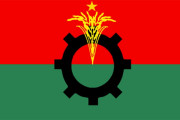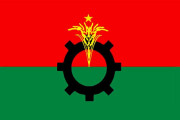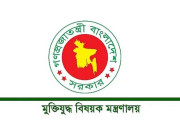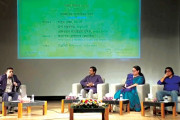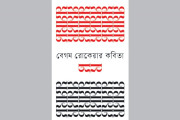Thousands of Rohingya people, who took shelter in south eastern district Cox’s Bazar fleeing from persecution in Myanmar, are at severe risk to be infected with coronavirus (Covid-19) as most of them have no clear information about the coronavirus, says a survey report.
“Most of the Rohingya people, living in densely populated temporary camps in Cox’s Bazar, are yet to be aware of the coronavirus. Particularly, women and children in the Rohingya camps are most vulnerable to the disease,” said the survey report.
The report of the survey, carried out jointly by non-governmental organisation KNH Germany and Samaj Kallyan O Unnayon Sangstha (SKUS), was disclosed at a Meet the Press at Dhaka Reporters Unity on Thursday. It recommended taking massive awareness programme there to reduce the risk of spreading the coronavirus among Rohingyas.
Two Rohingyas had been tested positive for Covid-19 for first time in the world’s largest camp of displaced Myanmar nationals on May 14.
They were tested positive for Covid-19 after the entire camp area was cordoned off on March 14 only after 6 days first detection of Covid-19 patients in Bangladesh.
Of the 931 respondents, 30.1 per cent Rohingyas are yet to know about the coronavirus, 44 per cent believe that it is air borne disease and 77 per cent think that washing hands by water or shop can protect them from the disease, revealed the survey report.
SKUS chairman Jesmin Prema read out the survey report while Country Coordinator of KNH Germany Maruf Rumi Momtaz, Programme Coordinator of KNH Md Moniruzzaman Mukul, National Coordinator of KNH Matilda Tina Baidya and President of Dhaka Reporters Unity Rafiqul Islam Azad spoke on the occasion.
In the five point recommendations, the survey report put emphasis on the need for taking a strong role by the Directorate of Health Services to remove misconception of Rohingya people about the disease and utilize the local media to create awareness among them.
Maruf Rumi Momtaz claimed that the survey report reflected the overall situation in regards to thoughts of Rohinga people as they carried out it following a random selection process in the camp areas.
Replying to a question, he said there is no statistics to them as to how many Rohingyas have so far been infected with coronavirus.




















